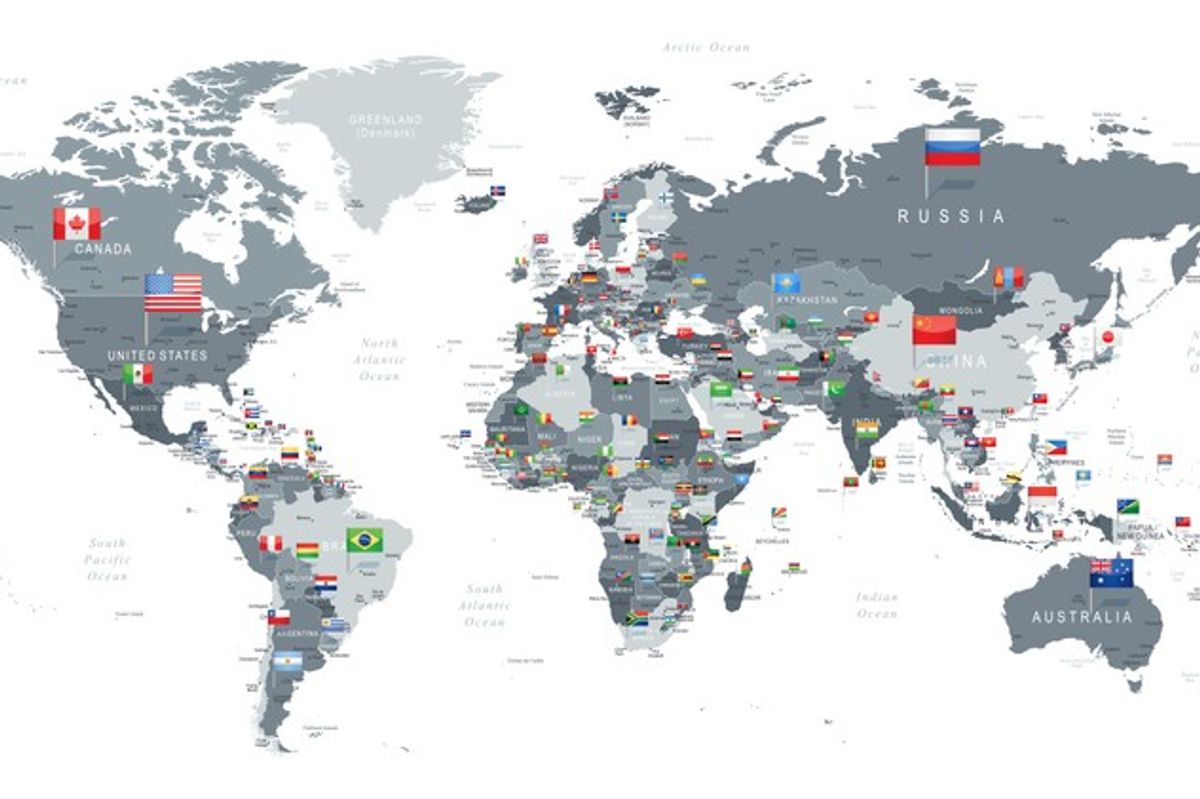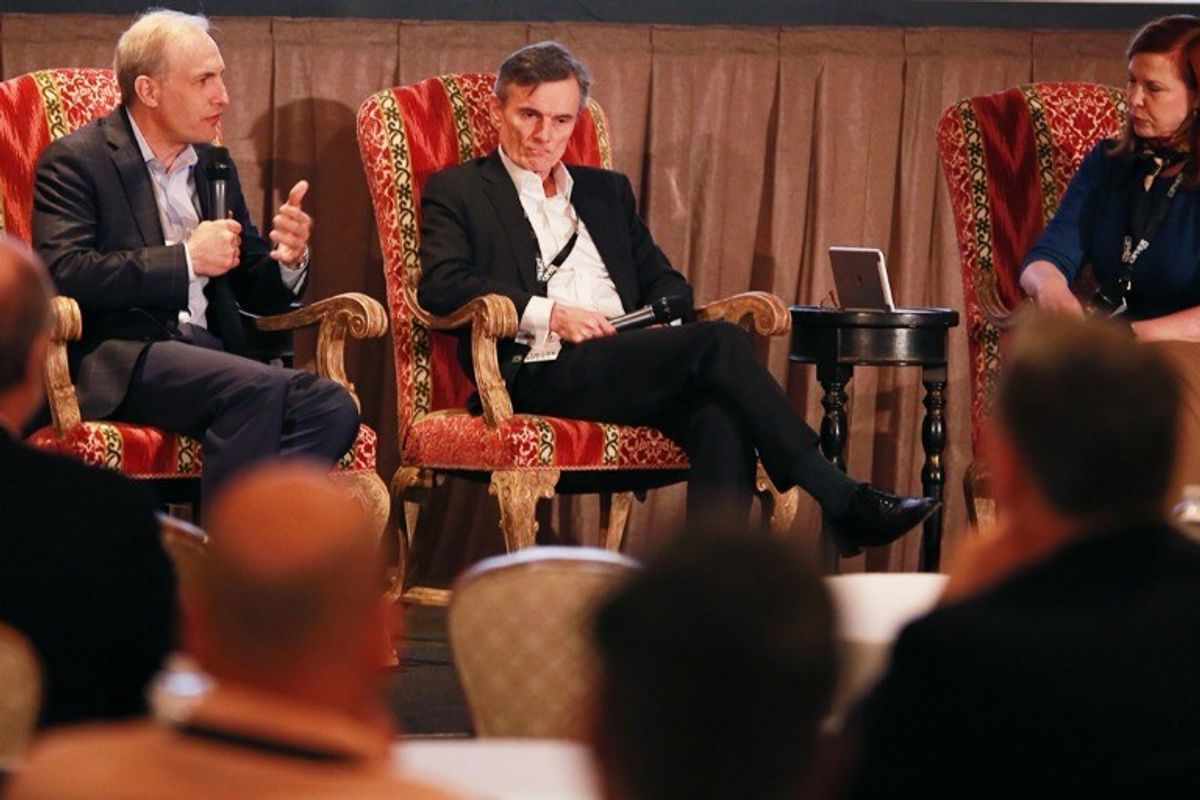The Brexit referendum threatens European cohesion and, thus, could have serious consequences for defense of the European continent. The Cipher Brief spoke with Rachel Rizzo at the Center for a New American Security (CNAS) about the future of European security.
The Cipher Brief: What is going to happen to European defense and security institutions now that the UK has voted to leave the EU?
Rachel Rizzo: The biggest question comes down to intelligence-sharing, terrorism within the EU, and counterterrorism operations. Look at Europol, which is the European law enforcement agency: at some point the UK will cease to be a member of Europol if it leaves the EU. That’s going to affect intel-sharing. But I think we need to be careful and not be too inflammatory about this because it is in the best interest of all of Europe for Europol to negotiate an intel-sharing agreement with the UK. They already have agreements with 14 other countries. So I think it would be at the top of their list to do that with the UK as well. While the UK is focusing inward, people have to make sure that intel-sharing and CT operations don’t slip.
TCB: How much does the UK contribute to intelligence sharing within the EU right now, compared to other countries like Germany and France?
RR: They contribute a lot. They’ve been a key part of intel-sharing within the EU, especially over the last year or so, as we’ve seen mass migration take Europe by surprise. Like I said before, it’s going to be in everyone’s best interest to make sure that that doesn’t slip. Everyone will want to ensure there’s continuity even though the UK may not be a member of the EU anymore. That’s not happening overnight; it’s going to take a while. But it should be at the top of everyone’s list.
TCB: Intel-sharing is a big component of combatting terrorism. What do you think the impact is going to be on the security of the European continent as a whole, particularly with regards to terrorism?
RR: It depends. You see the Schengen Agreement (for passport-free travel between member countries) coming under fire, and you’ve seen some European countries enact border control, where they haven’t in the past. People are nervous about the influx of mass migration onto the European continent. I don’t think the Schengen Agreement will fall by the wayside, but people are going to look more at border controls, and make sure they share information they may not have otherwise shared. You’ve seen this increase in intel-sharing in the wake of the Paris attacks in November and the Brussels attacks in March. I think it’s becoming more and more of a focus.
More serious is the issue of the rise of far-right parties that really spew anti-EU and anti-immigration rhetoric. In other countries like Germany, France, the Netherlands, Austria, and Poland, EU-phobic parties are gaining more and more support. They’re going to start trying to drive their agendas pretty hard.
TCB: And that would, in your opinion, negatively impact security on the European continent?
RR: As far as negatively impacting security goes, I think it negatively impacts European cohesion. And that’s what’s really important. Right now, we’re seeing an overarching threat of terrorism and a resurgent Russia – and so it’s really important for the EU to come together and pursue common security goals, common foreign policy goals that forward their goals of a Europe whole, free, and at peace. And the UK basically saying to the EU: “we don’t have faith in this” is a bad sign. We don’t want to see European cohesion break down.
TCB: Are we going to see another country – like Germany or France – fill the void that the UK will leave with a Brexit?
RR: Well we’re going to need to, because right now the UK is really the only member state of the EU that’s even capable of undertaking global operations. We’re already seeing Germany step up to the plate a little bit more within the NATO alliance, and subsequently other EU countries will probably follow suit. I could see France or Germany stepping up to the plate within the EU. But it’s not going to happen overnight. It’s going to take a while, and it’s going to take support from their publics, which is going to be hard to get.
TCB: Speaking of NATO, although the Brexit does not mean Britain is leaving NATO, will there be other “soft” implications for the NATO partnership?
RR: I think that come the NATO Warsaw Summit next month, Britain is going to show extra resolve to show that it’s committed to NATO and will still contribute two percent of its GDP to defense (which is a requirement for the NATO alliance, even though it’s totally unenforced).
At the same time, the UK is going to have to turn inward right now for a while. They’re going to have to make sure everything is okay on the home front. And that takes attention and time and resources away from the NATO alliance. So while the UK isn’t going to lose any of its voting power within NATO, it could become more focused on internal issues and less focused on the NATO alliance as a whole.
TCB: What, in your opinion, is the most important thing to watch with how security and defense might change in Europe and in the world?
RR: The issue of European cohesion. Europe has had a tough couple of years. It’s crumbling under the weight of so many crises – from terrorism to migration to the financial crisis – and presenting a united front is really what’s important when it comes to common security and defense. Europe needs to do everything in its power to make sure that that continues, and to make sure that they work together for the benefit and common interest of everyone. It’s going to be tough. Once Article 50 of the Lisbon Treaty is enacted, they’re going to have two years to negotiate a withdrawal agreement, and all other members have to agree to that, so we need to make sure that happens in a way that’s mutually agreeable for both sides. It’s going to be tough, but it’s in everyone’s best interest.
Rachel Rizzo is the Research Associate for the Strategy and Statecraft Program at the Center for a New American Security (CNAS). Prior to joining CNAS, Ms. Rizzo worked with the Office of the Under Secretary of Defense for Policy, the State Department’s Bureau of Political-Military Affairs, the National Defense University, and the U.S. Mission to NATO.











